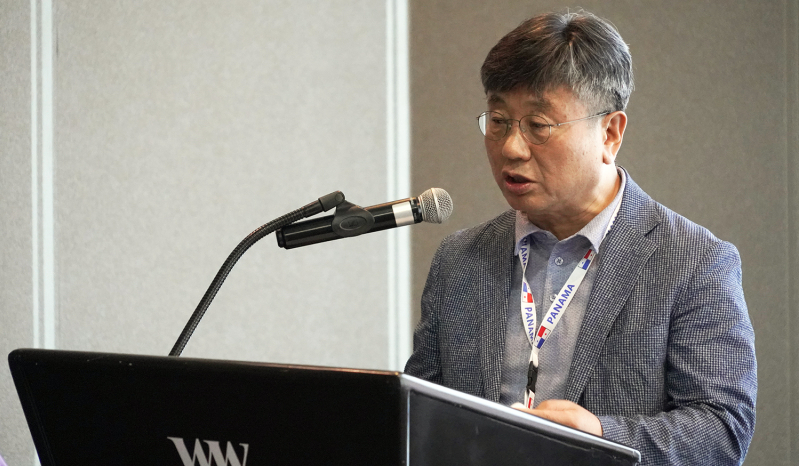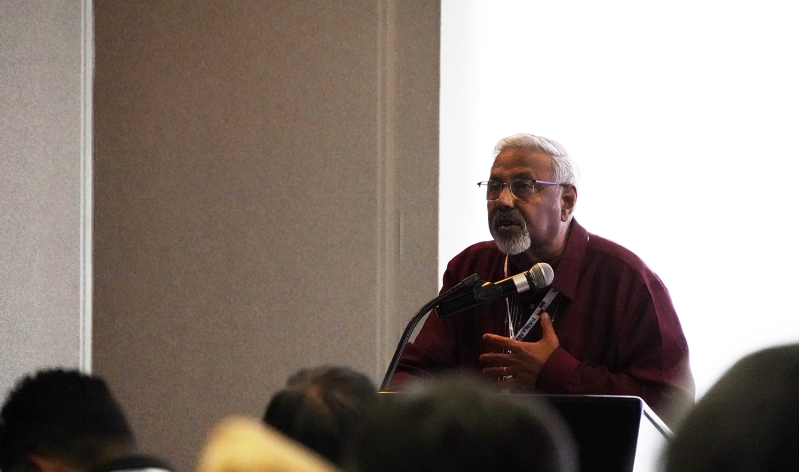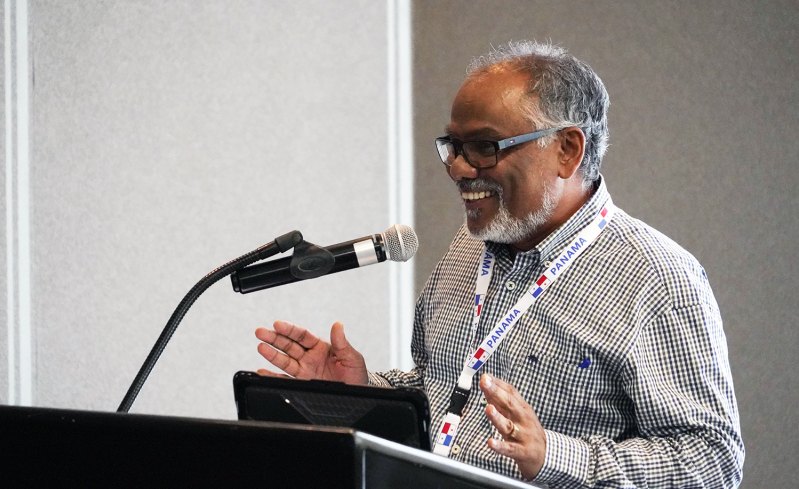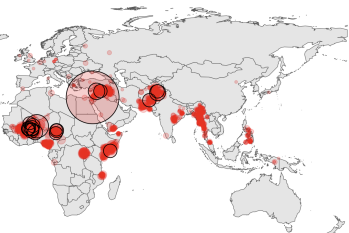
The COALA3.0 conference continued on Monday afternoon (April 28) with its third plenary session, focusing on "Networking with the Rest of the Global Church," as leaders emphasized the need for deeper collaboration across continents, generations, and cultural divides.
COALA, short for Christ over Asia, Latin America, and Africa, is a mission movement dedicated to fostering South-to-South partnerships and empowering churches across the Majority World. Throughout the day, participants also engaged in table group discussions, reflecting on how to apply the lessons from the plenary speakers to their own ministry contexts.
Rev. Jonas Kang: Championing local church-centered missions
Rev. Jonas Kang, General Secretary of the Korea World Mission Association (KWMA), opened the session by highlighting the growing strength of Korean missions and stressing the need for mutual respect and partnership with local churches in the Global South.
Kang shared that KWMA, composed of more than 145 member agencies, connects both local churches and international mission agencies in Korea. Korean missions currently involve more than 21,400 missionaries worldwide, with numbers reaching over 30,000 when broader categories are included.
Reflecting on his tenure as General Secretary during the COVID-19 pandemic, Kang noted how the crisis exposed the vulnerabilities of traditional mission structures. Many Korean missionaries had to be evacuated, revealing the dependency on external support structures.
"What we learned during the pandemic," Kang said, "is that missionaries, despite their good intentions, are outsiders. When crises come, it is the local believers who remain, who endure, and who lead."
Kang emphasized the necessity for mission strategies that prioritize local leadership. He referred to a series of "Recommendations for Mission Practice" developed in Bangkok, advocating for a shift away from top-down models to "partnership missions," where local churches define needs and strategies.
"In the new era of mission," Kang said, "sending churches, receiving churches, and missionaries must work in mutual agreement. The local church is not a mission field to be occupied but a partner to be honored."
Drawing a parallel to the classical music era, Kang likened the need for synergy among mission movements to the mutual inspiration that occurred between composers like Joseph Haydn, Ludwig van Beethoven, and Wolfgang Amadeus Mozart.
"Just as the creative excellence of that era arose through collaboration," he said, "so too must churches across the Global South simultaneously and collaboratively engage in mission."
He also stressed that national mission associations like KWMA must work closely with local churches to sustain and expand mission movements.
"If mission movements are to be healthy and sustainable," Kang concluded, "the active participation and leadership of local churches is indispensable."
TV Thomas: Raising up the next generation of mission leaders
The second speaker, TV Thomas, an intercultural leadership expert originally from Malaysia, challenged the audience to intentionally prepare the next generation for leadership in missions.

Thomas, who has served on more than 38 national, regional, and international Christian organization boards, reflected on a critical leadership gap he observed decades ago.
"In the early 1980s," he said, "it became clear that we were weak in developing sufficient leaders for the kingdom and poor in board governance."
Thomas warned that many mission organizations have graying leadership, with few younger leaders being mentored to take their place. This trend, he said, risks the future vitality of global missions.
Highlighting four major challenges—contextual, personal, workplace, and mission-world challenges—Thomas explained that today's complex, multi-generational context demands a new approach to leadership development.
"Today, eight generations are alive," Thomas said. "Each has different core values and perspectives shaped by unique historical experiences."
He stressed the importance of understanding these generational differences, learning their strengths and weaknesses, and adapting leadership styles accordingly.
Thomas outlined practical steps for developing younger leaders:
- Purpose in Heart: Leaders must commit to making room for younger voices at decision-making tables.
- Intentional Recruitment: Organizations should actively search for emerging leaders rather than relying on traditional networks.
- Understanding Generational Competencies: Leaders must learn the strengths and values of different generations to foster healthy collaboration.
- Clear Purpose and Direction: Organizations must articulate clear missions and visions to inspire commitment.
- Building Relationships: Leaders must prioritize relational over transactional connections.
- Developing People: Mentorship should focus on recognizing and expanding individual potential.
- Practicing Deep Listening: Leaders should create safe spaces for emerging voices to be heard.
"We need Joshua at Moses' table, Elisha at Elijah's table, Paul at Barnabas' table, and Timothy at Paul's table," Thomas said. "If we do not make room, we will miss the leadership God is raising up."
He urged mission leaders to resist the temptation of isolation and generational silos, reminding them that without generational renewal, missions will falter.
Dr. Peter Vimalasekaran: Embracing migration and mutuality
The final speaker, Dr. Peter Vimalasekaran, brought a deeply personal and current perspective rooted in his experience as a Sri Lankan refugee ministering among migrants in Germany.

"Migration is reshaping the global mission landscape," Vimalasekaran said. "It is no longer missions from the West to the rest, but everywhere to everywhere."
Vimalasekaran, who co-founded the Evangelical Migration Center in Germany and leads Refugee and Migrant Ministries International, emphasized the importance of recognizing the "faces behind the statistics."
"Refugees and migrants are not just numbers," he said. "They are men, women, and children who bear God's image and have much to teach us."
Sharing stories from his ministry among more than 40 nationalities, Vimalasekaran described how trauma, resilience, and faith intersect in migrant communities. He warned against viewing migrants solely as mission fields and instead advocated for partnerships based on mutual respect.
He also noted the rise of far-right movements in Europe, challenging the global church to offer a prophetic, countercultural witness of hospitality and inclusion.
"The reality of migration forces us to move from a mono-centric to a polycentric mission model," he said. "New mission centers are emerging in unexpected places."
Vimalasekaran urged COALA participants to embrace a non-transactional model of mission based on genuine friendship, patience, empowerment of marginalized voices, and forgiveness.
"In the mission world," he said, "we often value people for what they can do for us. But God's mission values people simply because they are His."
Drawing from his own journey—from a refugee in Germany to a global mission leader—he called the audience to leave behind old models of superiority and embrace mutuality.
"We must build mission partnerships that are not about power but about presence, not about efficiency but about love," he concluded.





